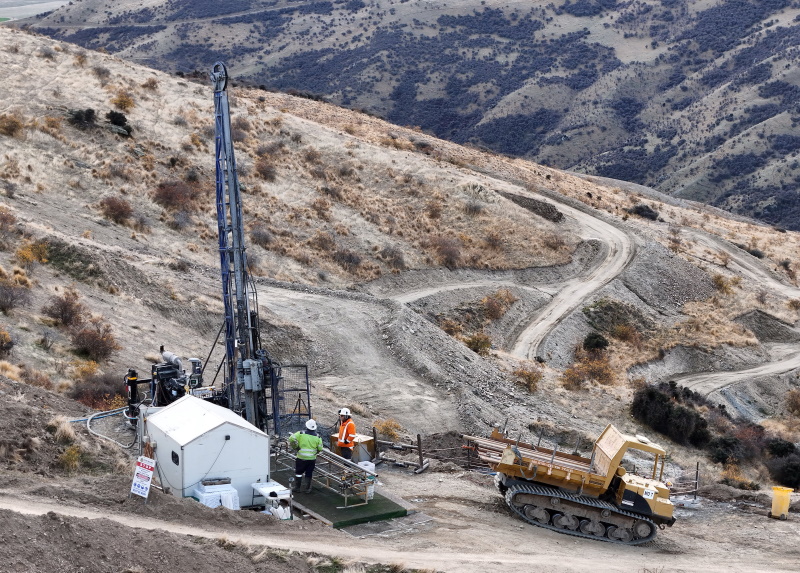
Others with projects included in the Bill say they have no plans at present to consent under the new legislation, but are open to it in the long run.
Meanwhile, an environmental group has branded the legislation ‘‘some of the worst law-making’’ it has ever seen.
The controversial Fast-track Approvals Bill passed its third and final reading and into law, in Parliament on Tuesday.
Among the list of 149 proposed projects included were Australian mining company Santana Minerals’ $5b Bendigo-Ophir gold project, OceanaGold’s Macraes Phase 4 (MP4) staged gold mine expansion, Pioneer Energy and Manawa Energy’s nearly 80-turbine Kaihiku Wind Farm near Balclutha, and Sanford Ltd’s two open-ocean salmon farms north of the Otago Harbour.
From February 7, these projects would be able to apply to the Environmental Protection Authority to have an expert panel assess the project, decide whether to consent it and apply any relevant conditions.
In a statement released to the New Zealand share market yesterday, Santana Minerals said the successful passage of the Bill represented a significant milestone for the company, and it intended to lodge its application ‘‘as soon as practically possible’’.
‘‘The new New Zealand government has delivered on its promises to cut through the layers of red and green tape that have increasingly crippled economic development, created substantive cost and delays and handicapped project financing,’’ chief executive Damian Spring said.
Santana believed the project could deliver a ‘‘sustainable and responsible operation’’ that would provide enduring benefits to all stakeholders.
The company firmly believed the proposed development application would clearly demonstrate material outcomes and benefits that would ‘‘far outweigh’’ any temporary adverse impacts, Mr Spring said.
OceanaGold senior vice-president, legal and public affairs, Alison Paul said the company supported and welcomed the legislation.
It was continuing with its current resource consent process, which would include mining at Macraes until about 2030.
These applications were currently with local and regional councils, and OceanaGold was working through their requests for further information as part of the current Resource Management Act process.
There were ‘‘no plans’’ to apply to have elements of MP4 assessed by an expert panel that were already part of existing consenting applications.
‘‘Our longer-term plans for MP4 would potentially go into a fast-track process, with timing still to be worked out.’’
Environmental groups were not as pleased by the passing of the Bill.
Forest & Bird conservation advocacy and policy group manager Richard Capie said it was ‘‘a dark day for Aotearoa New Zealand’’.
It would slash environmental protections, silence local voices and was an affront to good law-making, he said.
‘‘New Zealanders care about nature, rely on nature and are proud of nature, but this law puts mining, energy and irrigation projects ahead of the environmental bottom lines we all rely on as a country.’’
Greenpeace said more than 21,000 people had signed an open letter promising to resist fast-tracked projects if companies went ahead with the process, and warned that this resistance would continue.
Manawa Energy chief executive Clayton Delmarter said the company was committed to contributing to New Zealand’s renewable energy future and improving the security of the electricity system.
The legislation presented an opportunity to deliver ‘‘significant critical infrastructure projects’’ in a timely manner.
It was committed to working alongside experts to carry out robust studies and assessments which would help determine the project’s feasibility and guide their resource consent application, Mr Delmarter said.











